Public-Private Partnerships for AI-Enabled Transformation of Public Sector Delivery in the Arab region
UNDP Egypt and the Applied Innovation Center
Session 500
This session will explore how Artificial Intelligence (AI) can be responsibly and effectively integrated into public sector strategies through public-private partnerships (PPPs). Organized by UNDP Egypt, in coordination with Egypt’s Ministry of Communications and Information Technology (MCIT) and the Applied Innovation Center (AIC), the panel will bring together policymakers, experts, and practitioners to discuss scalable, ethical, and inclusive approaches to AI-driven public service transformation.
The panel will highlight practical applications of AI in public administration, finance, public safety, and citizen engagement, drawing on both local and international experiences. It will delve into emerging challenges such as data privacy, algorithmic bias, and the need for ethical AI use in government settings. The discussion will also underscore the importance of capacity building, transparency, and public trust in achieving sustainable digital transformation.
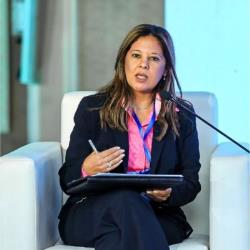
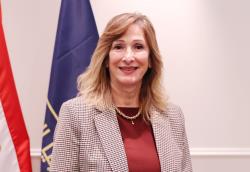
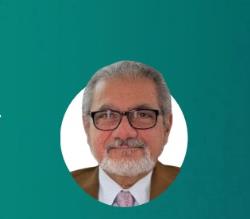
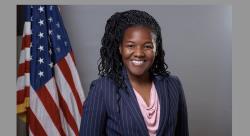
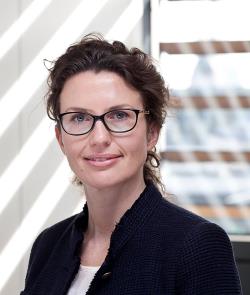
-
 C1. The role of governments and all stakeholders in the promotion of ICTs for development
C1. The role of governments and all stakeholders in the promotion of ICTs for development
-
 C4. Capacity building
C4. Capacity building
-
 C7. ICT applications: benefits in all aspects of life — E-government
C7. ICT applications: benefits in all aspects of life — E-government
-
 C11. International and regional cooperation
C11. International and regional cooperation
C1. The role of governments and all stakeholders in the promotion of ICTs for development
This session highlights the importance of multi-stakeholder collaboration—bringing together governments, the private sector, NGOs, and development partners—to leverage AI for public service transformation. It showcases how inclusive partnerships can drive innovation in public administration, aligning digital transformation with national development goals and public values such as equity, transparency, and accountability.
C4. Capacity building
One of the session’s core objectives is to explore how governments can strengthen institutional and human capacity to manage and deploy AI responsibly. By discussing best practices, skills development, and institutional readiness, the session supports national efforts to build the technical, ethical, and governance capabilities required for sustainable digital transformation.
C7. ICT applications: benefits in all aspects of life — E-government
By focusing on AI applications in public administration, finance, public safety, and citizen engagement, the session contributes to a holistic approach on E-government and how it can benefit other aspects. It explores how AI can enhance efficiency, responsiveness, and accessibility in public service delivery, ultimately improving citizens' everyday interactions with government institutions.
C11. International and regional cooperation
The session focuses on public-private partnerships (PPPs), exploring how cross-border collaboration can accelerate AI-driven innovation in public service delivery. Governments, businesses, and international organizations are increasingly working together to share best practices, align regulatory frameworks, and co-invest in scalable AI solutions
-
 Goal 8: Promote inclusive and sustainable economic growth, employment and decent work for all
Goal 8: Promote inclusive and sustainable economic growth, employment and decent work for all
-
 Goal 9: Build resilient infrastructure, promote sustainable industrialization and foster innovation
Goal 9: Build resilient infrastructure, promote sustainable industrialization and foster innovation
-
 Goal 16: Promote just, peaceful and inclusive societies
Goal 16: Promote just, peaceful and inclusive societies
-
 Goal 17: Revitalize the global partnership for sustainable development
Goal 17: Revitalize the global partnership for sustainable development
SDG 8 - Promote inclusive and sustainable economic growth, employment and decent work for all:
By promoting AI-driven efficiencies in public service delivery and investing in digital skills, the session supports job creation and inclusive economic growth.
SDG 9 - Build resilient infrastructure, promote sustainable industrialization and foster innovation
It showcases how AI can modernize government systems and drive innovation in public sector infrastructure.
SDG 16 -Promote just, peaceful and inclusive societies:
The session promotes the use of AI to improve access to justice, enhance public safety, and ensure inclusive, transparent, and accountable public services—key pillars of peaceful and just societies
SDG 17 - Revitalize the global partnership for sustainable development
The session is built on public-private collaboration and international cooperation—key to scaling sustainable digital transformation.
UNDP Egypt Facebook Link: https://www.facebook.com/UNDPEgypt/
UNDP Egypt Instagram Link: https://www.instagram.com/undp.egypt/?hl=en&source=omni_redirect
UNDP Egypt Linkedin Profile: https://www.linkedin.com/company/undp-egypt/
AIC Website: https://aic.gov.eg/en/home
MCIT Website: https://mcit.gov.eg/